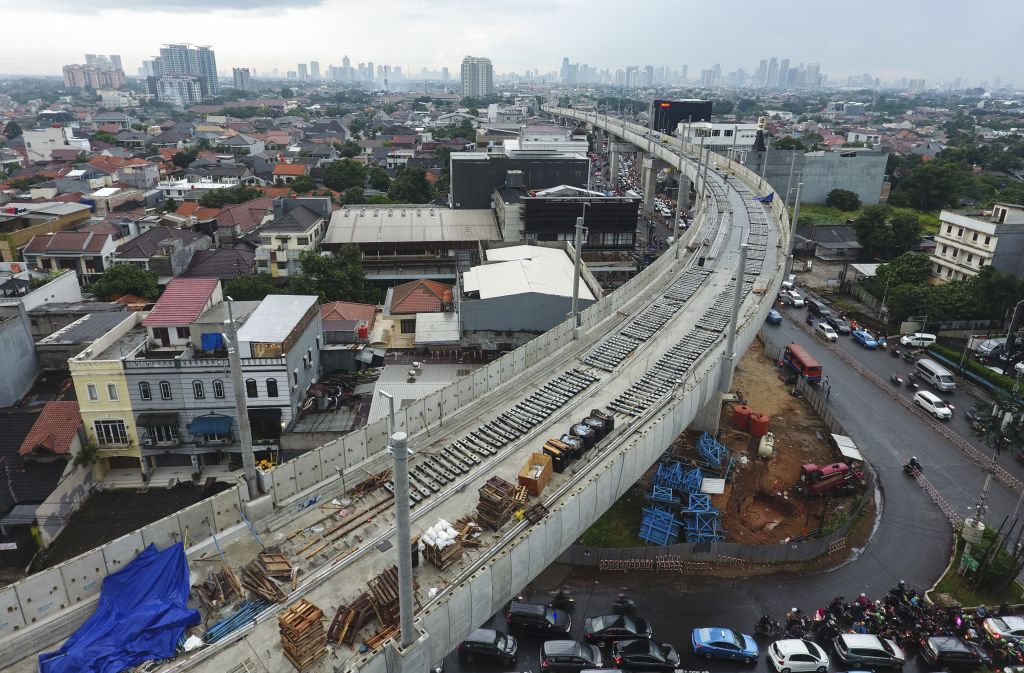Why northern Australia must play a part in Indonesia’s grand infrastructure rollout

Indonesia appears to be persevering with plans for its grand infrastructure rollout, likely to cost over US$400 billion, despite the Covid-19 pandemic’s impact on the archipelagic nation.
Australian businesses can join this endeavour through the Indonesia–Australia Comprehensive Economic Partnership Agreement (IA-CEPA). The long-term pipeline of work could create links between Australians and Indonesians, help Indonesia to upskill its workforce and contribute to the sustainment of a specialist, skilled workforce in the Northern Territory.
Between now and 2024, the Indonesian government intends to build or upgrade a range of airports, power plants, waste-to-energy facilities, mass-transit projects and the early stages of a new capital city to address inadequate infrastructure across the archipelago. However, Indonesia has critical workforce issues, identified by both its government and the Indonesian Chamber of Commerce and Industry. This includes critical shortages in the construction industry, in project management and project execution, and in numbers of specialist contractors, general workers and nationally and internationally certified personnel.
Pre-pandemic, the government was aiming for approximately 40% of the infrastructure funding to be sourced from the state, 25% from state-owned enterprises and 35% from the private sector. While the full effect of the pandemic remains to be seen, especially with the most recent, devastating wave of Covid-19 in Indonesia, early indications are that these figures have changed and that a higher proportion of private-sector funding will be required.
IA-CEPA, which came into effect in 2020, opens the door for Australian companies to engage in the rollout outside of a traditional financial investor role.
Majority Australian-owned companies can now supply architectural, engineering, urban planning, project management, surveying and construction services in Indonesia. Consultants in those areas can operate on a cross-border basis, and Australian suppliers of specific technical and vocational education and training have guaranteed market access through majority-owned businesses.
This could be a major boon for the NT, which suffers from a cyclical economy with pronounced peaks and troughs, historically driven by major projects and a transient skilled-worker population.
Following the end of the construction phase of the Inpex LNG project, the territory economy contracted and many of the skilled workers the project attracted left to seek work elsewhere.
However, the pandemic’s impact in the NT has been less than was expected. Major projects in the pipeline and defence infrastructure spending, including more than $747 million for training infrastructure upgrades, appear to indicate that the worst of the contraction is coming to an end.
This future pipeline of work will generate a larger skilled workforce in the NT and attract workers to the territory, but it is critical, now more than ever, that this workforce be sustained. The presence of a skilled workforce improves the flow of specialist skills to younger workers, reduces the cost of businesses having to pay for fly-in, fly-out workers, and encourages investment in the territory. Skilled workers in sectors relevant to infrastructure development in the NT gain expertise in undertaking large projects in remote locations to a high standard, suited to the territory’s harsh environment and climatic patterns.
The Indonesian infrastructure rollout could be a key part of the pipeline of work needed to sustain the NT’s skilled workforce. The territory’s proximity to Southeast Asia means Darwin is ideally placed to serve as a hub for Australian businesses engaging in Indonesian infrastructure projects. These businesses could base their workers in the territory and draw from a skilled local workforce on a cross-border basis on these infrastructure projects as is now permitted by IA-CEPA.
Sustaining a skilled workforce in the NT is not just in the territory’s interest; it is strategically important and in the national interest. The Australian government’s 2020 force structure plan emphasises the need to build sovereign industrial capacity, which the Defence Department is working towards with its infrastructure spending. But for that industrial capacity to be maintained, there needs to be work in the pipeline to sustain it. The NT government cannot afford to fund the projects necessary for that sustainment, and the Australian government isn’t necessarily willing to provide the funding either.
While mechanisms are already available for businesses to engage in the Indonesian economy, Indonesia is a relationship-driven market. Territory businesses need help to get a foot in the door in Indonesia, and both the Australian and NT governments can play a key role in providing that support. The governments can help businesses build those critical relationships through skills exchange agreements at a provincial and business level. Such skills exchanges are stipulated in IA-CEPA and align directly with the Indonesian government’s workforce development goals.
If the foundational work is started now, and introductions are made, skills exchange agreements are negotiated and relationships developed, then by the time the current tranche of projects winds down in the territory, businesses will be ready to engage, or will be already engaged, in the Indonesian infrastructure rollout. That will ultimately contribute to the sustainment of the territory’s industrial capacity.
 Print This Post
Print This Post